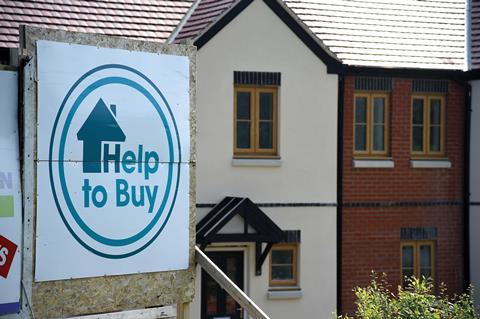Nearly two-thirds of homes in Barking and Dagenham bought using scheme
Help to Buy loans have been used on more than 20% of new-build sales across the capital since 2013, analysis published today reveals.

But the research, carried out by fintech firm Proportunity, found that more needed to be done by the next government to boost homeownership in the capital, since the scheme has helped more people in outer London than those in the inner boroughs.
Proportunity looked at the proportion of new-builds in each borough that were sold with a Help to Buy loan between the scheme’s introduction in April 2013 and the first quarter of 2019, when the data was last available.
East London’s Barking and Dagenham topped the rankings, with 61.7% of new-build homes sold using the scheme. Waltham Forest, with 51.7%, was the only other borough to break the 50% mark. Sutton, Havering and Redbridge also ranked in the top five.
Conversely, two inner London boroughs saw almost no Help to Buy activity, with Kensington and Chelsea only seeing 14 loans since 2013, just 1.1% of all new-build sales, and the City of London registering just five, or 0.7% of all new-build sales.
Across the whole of London, the scheme supported 22% of new-build sales. If properties that cost more than £600,000 - the threshold put in place by the government - were excluded this figure rose to 29.7%.
>> Analysis: How will housebuilders cope after the end of Help to Buy?
Proportunity also looked at Help to Buy as a proportion of total sales and transactions since 2013 and not just new-builds and found the scheme made up only 2.6% of total sales across London.
The boroughs where it made up the highest proportion of all sales included Barking and Dagenham, with 5.2%, Greenwich at 4.6%, and Barnet with 4.6%.
The research showed that 84.2% of all Help to Buy loans since the scheme launched had been used on flats.
Help to Buy was introduced by the coalition government in 2013 to help boost both housebuilding and homeownership.
But despite initally extending the scheme after their general election victory in 2015 the Conservatives have said they will look to wind it down by 2023.











No comments yet